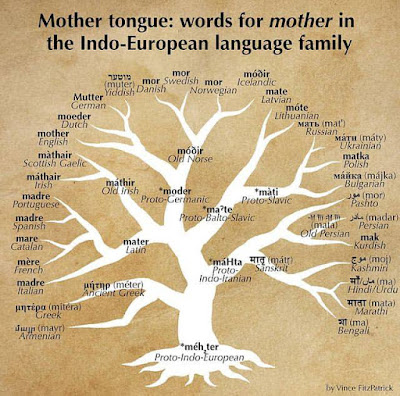The Omnis, and Why They Matter
Depending on your background, you may be familiar with the omnis. (Omnipotence, Omniscience, Omnipresence, and Omnibenevolence). Back when I was just an itty bitty pagan in college I first got introduced to these concepts in my 2nd year Philosophy course on Metaphysics. Now, my understanding from the content I have come across is that the omnis are a christian concept, or at least a monotheistic concept. That makes sense, because they really only fit into a monotheistic worldview. However, I really found building my understanding of the omnis helped me to understand my own worldview better and to express my thoughts about it.
So the basics, in case you aren’t familiar with these concepts:
Omnipotence - The belief that gods are all powerful
Omniscience - The belief that gods are all knowing
Omnipresence - The belief that gods are all present (everywhere at once)
Omnibenevolence - The belief that gods are all good
In my philosophy course my professor posed the argument that god could not exist without all four of these omnis being present. I think his point was to show that a monotheistic god was not plausible, but I immediately jumped in another direction with it. I asked him, “But what if you don’t think god is omnibenevolent?” I could have challenged any one of the four omnis really, but that one was the first one to seem really problematic to me. He smiled wryly, and told me that I should humour him for the argument to work. Whatever the point was of the course I think I missed it, but at the same time I learned a lot of other things that I had never realized that I should think about before.
I don’t believe the gods are omni anything. Omnibenevolence immediately seems impossible to me. If the gods were omnibenevolent then there would not be human suffering. Well, almost… that assumes all the other omnis are true too, as my professor pointed out. If a god is omnibenevolent but not omnipotent, then they might not have the power to affect change even if they want to. Of course, even if the other omnis were present in our gods then I wouldn't believe them to be omnibenevolent. The gods have their own reasons for doing things and they are always aligned with our concept of what is good or even fair.
From my professor’s point of view omnipotence was the most important of the omnis, in that it was the most difficult to achieve. I quickly realized I did not believe the gods to be omnipotent either. I found myself struggling against the curriculum, because my concepts of deity were not the same as most of my classmates. The course was set up to expose the fallacy of monotheism, but for me it was a complicated dance of self-discovery, mixed with the frustration that I could not share it with anyone because I knew it wasn’t relevant to anyone but me at the time. The gods cannot be all powerful or Thor would defeat the midgard serpent and Skrýmir wouldn't have been able to defeat Thor with illusions either.
Omnipresence and omniscience are problematic for the same reasons as omnipotence. These three omnis play against omnibenevolence. If you are stuck on the gods being omnibenevolent then the other three cannot be true or the world wouldn’t make sense. However, if you take away omnipotence the other 3 crumble away as well. To me omnipresence and omniscience can’t really stand on their own, or rather, if they existed on their own they wouldn’t really change much about my worldview. That said, on their own they don’t really have much value either. What good is a god that is everywhere at once if they aren’t all powerful and all good? Why would you want an all knowing god, if they do not care about humanity or can’t do anything with that knowledge. These attributes don’t lead to greatness that is worshipful on their own. (Someone is going to come at me for saying Odin is not all-knowing, but is he? He knows a lot, but if he knew everything he wouldn’t keep going out to seek more knowledge by different avenues.)
So what is the take away from all of this? A god who had all 4 omnis would be too big to exist, which is why monotheism is problematic. It is really good news for polytheism though, because the gods don’t need to be omni anything to be worshipful, they just need to be greater than us. This subject area within philosophy is called The Problem of Evil, if you want to learn more about it. Interestingly, these philosophical concepts, although popularized by David Hume, actually are attributed to the ancient Greek Philosopher Epicurus. This means these ideas predate christianity. A quote attributed to Epicurus is as follows:
Is god willing to prevent evil, but not able? Then he is not omnipotent.
Is he able, but not willing? Then he is malevolent.
Is he both able and willing? Then whence cometh evil?
Is he neither able nor willing? Then why call him god?
— The Epicurean paradox, ~300 BCE
I say attributed to Epicurus, because this quote was recorded in the 3rd century by christian theologian Lactantius's Treatise on the Anger of God. As such, the language used in the quote reflects monotheism, but it still is interesting to think that these ideas have been in the human psyche for much longer.
Further Reading:
Dialogues Concerning Natural Religion by David Hume
Photo Source:
Thor Battles the Midgard Serpent. Illustration by Carl Emil Doepler, Sr. (1876)



